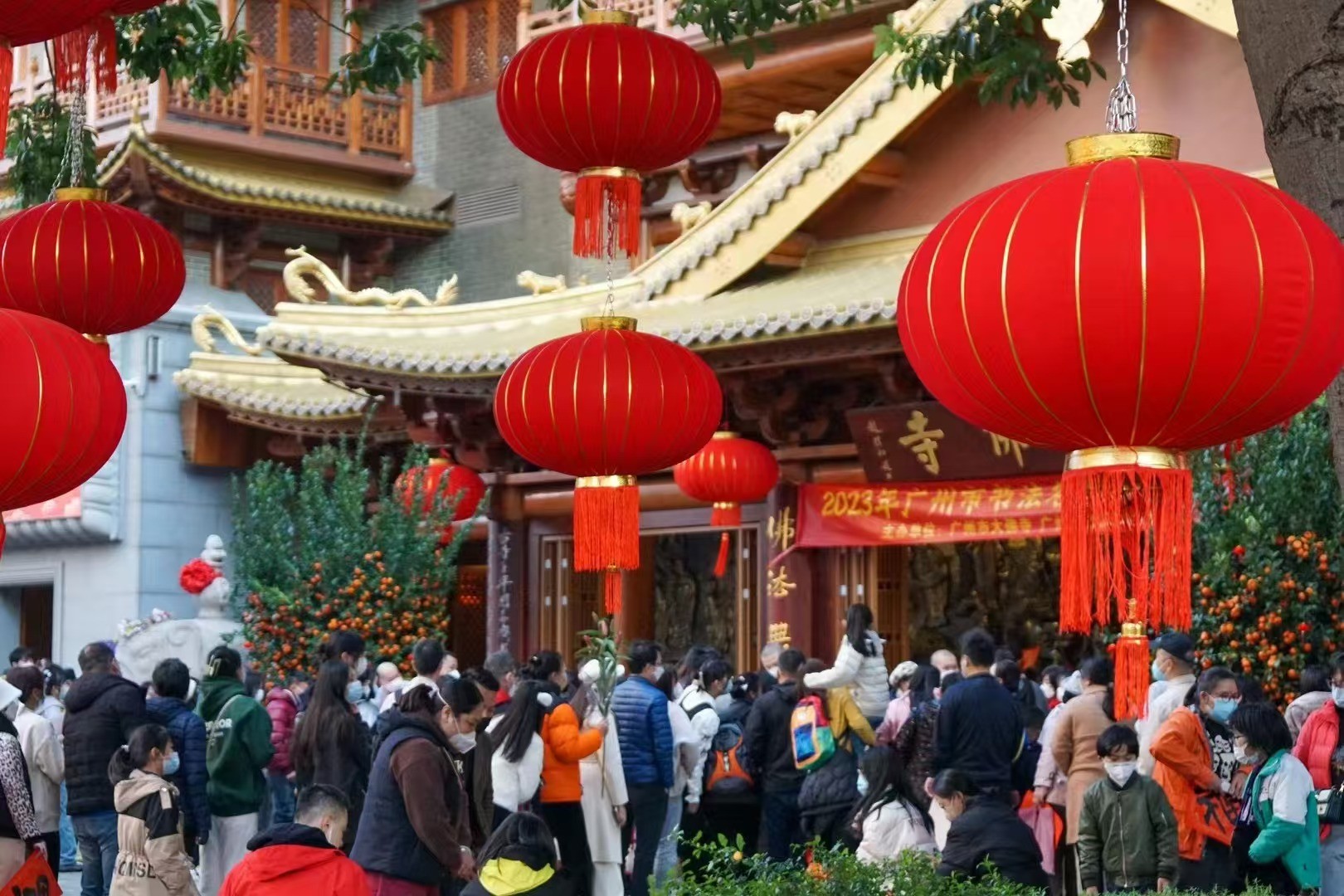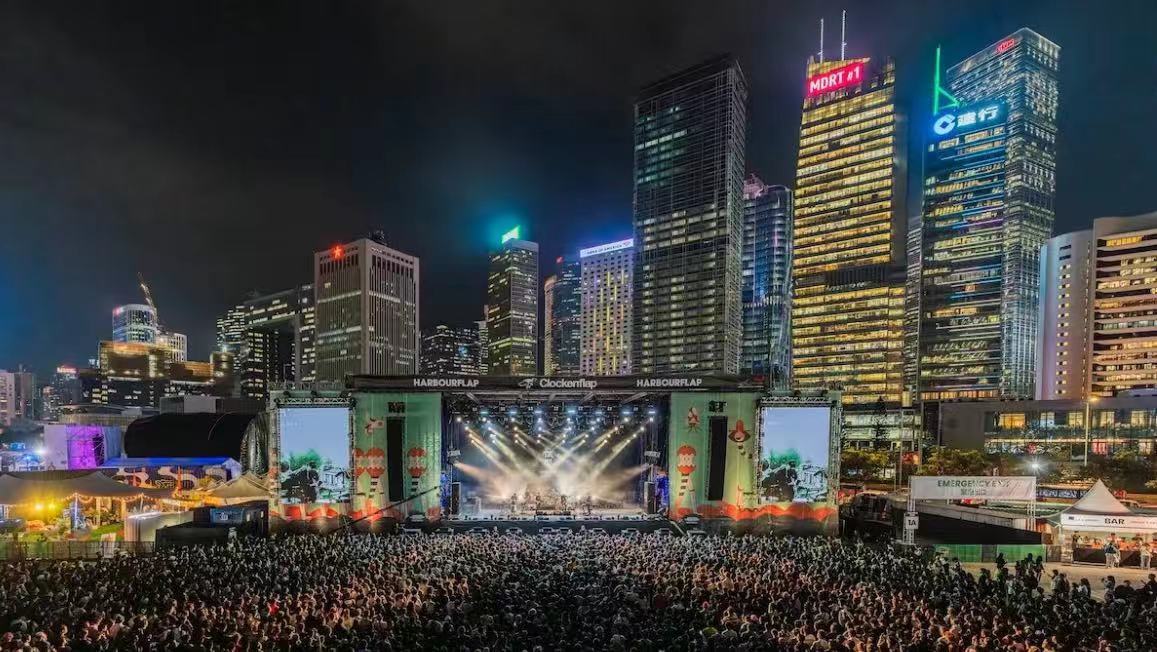On December 4, China celebrated a historic achievement as the 'Spring Festival, social practices of the Chinese people in celebration of traditional New Year' was officially inscribed on UNESCO’s Representative List of the Intangible Cultural Heritage of Humanity.
 Spring Festival flower fair in Guangzhou. Image by Billy Jiang/That's
Spring Festival flower fair in Guangzhou. Image by Billy Jiang/That's
The Spring Festival, also known as Chinese New Year, is one of the most widely celebrated cultural traditions in China, with a history spanning thousands of years.
It marks the beginning of the traditional lunar new year and is filled with rituals and practices that engage all aspects of Chinese society.
 Spring Festival couplet market in Foshan, Guangdong. Image by Billy Jiang/That's
Spring Festival couplet market in Foshan, Guangdong. Image by Billy Jiang/That's
From family reunions and prayers for good fortune to vibrant public celebrations and intricate art forms, the Spring Festival encapsulates the richness of China’s cultural heritage.
READ MORE: Your Day-by-Day Guide to the Spring Festival Calendar
During the 19th session of the Intergovernmental Committee for the Safeguarding of the Intangible Cultural Heritage, held in Paraguay from December 2 to 7, UNESCO acknowledged the Spring Festival for its deep cultural significance, its intergenerational transmission of knowledge, and its role in fostering family values, social cohesion, and peace.
This inscription brings the total number of Chinese cultural practices recognized by UNESCO to 44, the highest number of intangible cultural heritage listings of any country in the world.
The Spring Festival joins other cherished traditions, such as Chinese calligraphy and tea culture, on the prestigious list, further cementing China’s cultural influence on the global stage.
Check out The Explainer series for more stories that explain every aspect of life in China.
Full List of Intangible Cultural Heritage of Humanity from China
As of 2024, here is the full list of Chinese traditions recognized by UNESCO as part of the Intangible Cultural Heritage of Humanity:
2008
Representative List of the Intangible Cultural Heritage of Humanity
Urtiin Duu, traditional folk long song
2009
Representative List of the Intangible Cultural Heritage of Humanity
Grand song of the Dong ethnic group
Xi’an wind and percussion ensemble
Sericulture and silk craftsmanship of China
Craftsmanship of Nanjing Yunjin brocade
Traditional handicrafts of making Xuan paper
Traditional firing technology of Longquan celadon
Mongolian art of singing, Khoomei
Farmers’ dance of China’s Korean ethnic group
Chinese traditional architectural craftsmanship for timber-framed structures
China engraved block printing technique
2010
List of Intangible Cultural Heritage in Need of Urgent Safeguarding
Watertight-bulkhead technology of Chinese junks
Wooden movable-type printing of China
Representative List of the Intangible Cultural Heritage of Humanity
Acupuncture and moxibustion of traditional Chinese medicine
2011
List of Intangible Cultural Heritage in Need of Urgent Safeguarding
Representative List of the Intangible Cultural Heritage of Humanity
2012
Register of Good Safeguarding Practices
Strategy for training coming generations of Fujian puppetry practitioners
2013
Representative List of the Intangible Cultural Heritage of Humanity
Chinese Zhusuan, knowledge and practices of mathematical calculation through the abacus
2016
Representative List of the Intangible Cultural Heritage of Humanity
2018
Representative List of the Intangible Cultural Heritage of Humanity
2020
Representative List of the Intangible Cultural Heritage of Humanity
2022
Representative List of the Intangible Cultural Heritage of Humanity
Traditional tea processing techniques and associated social practices in China
2024
Representative List of the Intangible Cultural Heritage of Humanity
Spring festival, social practices of the Chinese people in celebration of traditional new year
Traditional Li textile techniques: spinning, dyeing, weaving and embroidering
Traditional design and practices for building Chinese wooden arch bridges
For more updates on China’s latest developments, follow our official WeChat account, ThatsGBA.
[Cover image by Billy Jiang/That's]




















0 User Comments